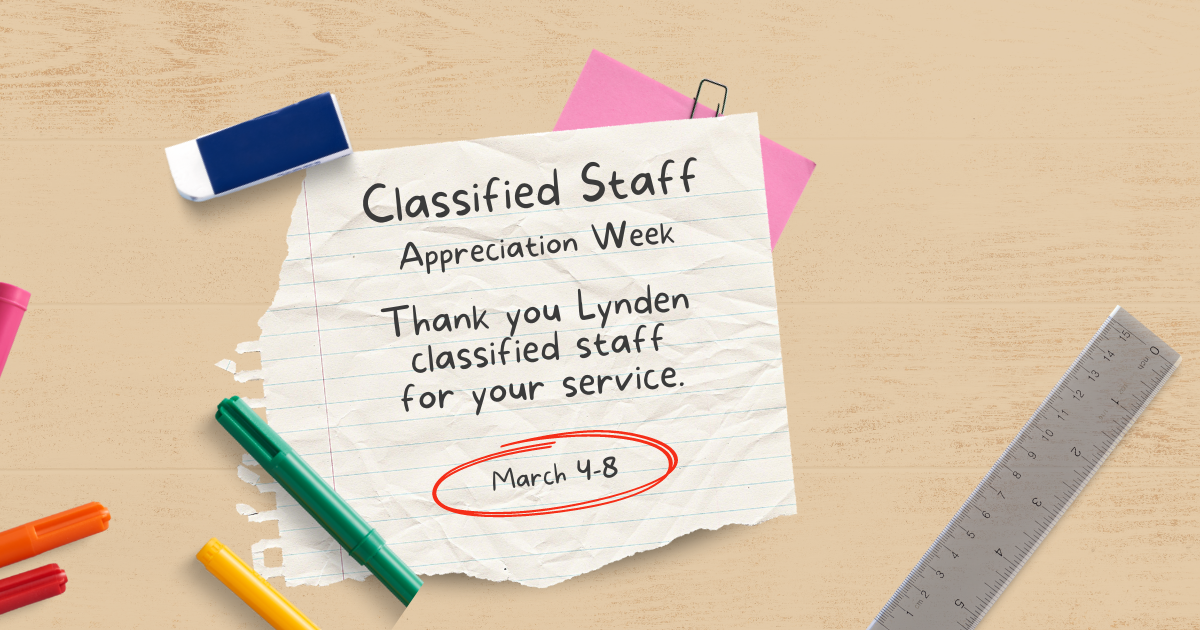Scott Noteboom: Connecting with a Range of Student Groups
This post is part of the Lynden Schools Staff Spotlight series At one point in … Read More »

This post is part of the Lynden Schools Staff Spotlight series At one point in … Read More »

Lynden is a growing community attractive to families who are expecting strong schools and a … Read More »

This post is part of the Lynden Schools Staff Spotlight series Amy Ohligschlager loves the … Read More »

Lynden Middle School has used the NCAA March Madness basketball tournament to generate college awareness. … Read More »

Lynden Schools celebrates Classified Staff Appreciation Week. Lynden’s support staff provides essential and impactful contributions … Read More »


